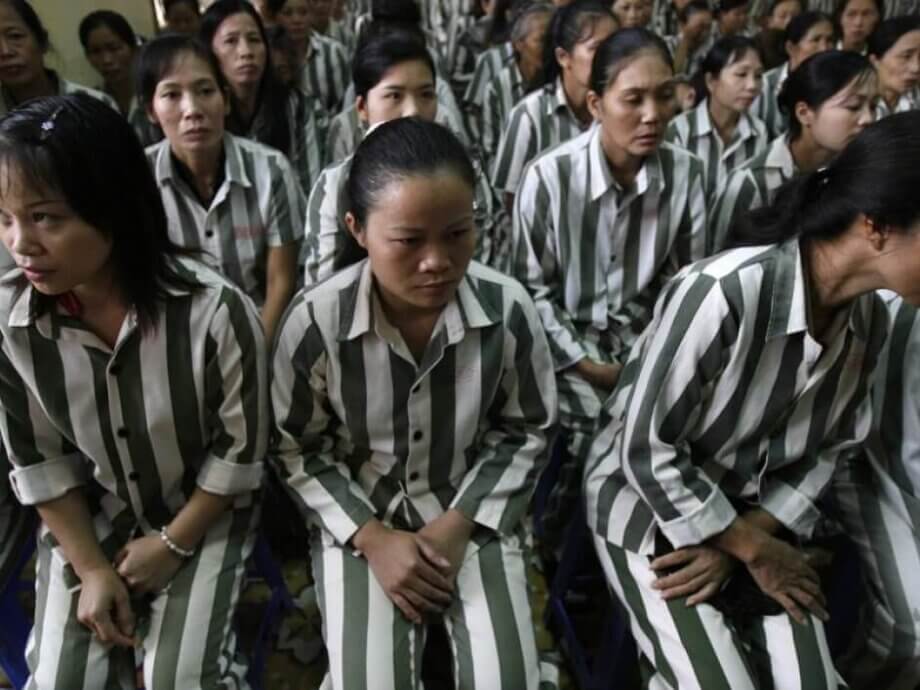Vietnam’s Historic Move: Death Penalty Abolished for Eight Major Crimes
Vietnam has taken a significant step in reforming its criminal justice system by abolishing the death penalty for eight serious offenses, including embezzlement, bribery, espionage, and activities aimed at overthrowing the government. This landmark decision, unanimously ratified by the National Assembly on June 25, 2025, marks a dramatic shift in the country’s approach to capital punishment and aligns Vietnam more closely with international human rights standards.
- Vietnam’s Historic Move: Death Penalty Abolished for Eight Major Crimes
- What Crimes Are No Longer Punishable by Death?
- Immediate Impact: The Case of Truong My Lan
- Why Is Vietnam Making This Change?
- How Has Vietnam’s Use of the Death Penalty Changed Over Time?
- International and Domestic Reactions
- Broader Implications: What Does This Mean for Vietnam’s Future?
- Challenges and Criticisms
- Comparative Perspective: How Does Vietnam’s Reform Compare Globally?
- What Happens Next?
- In Summary
The new law, which takes effect on July 1, 2025, reduces the number of crimes punishable by death from 18 to 10. The maximum penalty for the affected crimes will now be life imprisonment. This reform not only spares the lives of those currently on death row for these offenses but also signals a broader transformation in Vietnam’s legal and political landscape.
What Crimes Are No Longer Punishable by Death?
The amendment to the Criminal Code removes the death penalty for the following eight crimes:
- Embezzlement of property
- Bribery
- Espionage
- Attempting to overthrow the government
- Sabotaging state infrastructure
- Producing and trading counterfeit medicines
- Illegally transporting narcotics
- Waging aggressive war or destroying peace
Instead of facing execution, individuals convicted of these crimes will now receive a maximum sentence of life imprisonment. The law also stipulates that anyone already sentenced to death for these offenses, but not yet executed by July 1, will have their sentences automatically commuted to life imprisonment by the Supreme People’s Court.
Immediate Impact: The Case of Truong My Lan
One of the most high-profile beneficiaries of this legal change is Truong My Lan, a real estate tycoon and chairwoman of Van Thinh Phat Holdings Group. Lan was sentenced to death in 2024 for embezzling approximately $27 billion from Saigon Commercial Bank (SCB), a case that captured national and international attention due to its scale—amounting to about 6% of Vietnam’s GDP—and the rare public protests it triggered.
Lan’s lawyer, Giang Hong Thanh, confirmed that her sentence will be converted to life imprisonment. Thanh stated:
I informed Ms. Lan this morning, she is very happy.
Lan’s case had become emblematic of Vietnam’s sweeping anti-corruption campaign, which has led to the detention and prosecution of numerous high-ranking officials and business leaders. The new law also provides a path for further sentence reduction if Lan and others convicted of embezzlement or bribery return a significant portion of the misappropriated funds and meet other conditions.
Why Is Vietnam Making This Change?
The decision to abolish the death penalty for these crimes is rooted in several factors:
- International Pressure and Human Rights: Vietnam has faced criticism from human rights organizations and foreign governments over its use of capital punishment, especially for non-violent crimes such as corruption and economic offenses. The reform is seen as a move to improve Vietnam’s international image and facilitate cooperation with countries that refuse to extradite suspects to nations where they may face execution.
- Socio-Economic Realities: Officials, including Minister of Public Security Luong Tam Quang, acknowledged that the previous structure of capital punishment was increasingly out of step with Vietnam’s evolving socio-economic conditions and the realities of crime prevention. Many death sentences for these crimes were not actually carried out, reflecting a disconnect between law and practice.
- Legal and Diplomatic Considerations: Justice Minister Nguyen Hai Ninh noted that the change would enhance Vietnam’s ability to engage in international legal cooperation, particularly in extradition cases. In the past, some countries have refused to return fugitives to Vietnam due to the risk of capital punishment.
Nguyen Minh Duc, a police lieutenant general and deputy chair of the parliamentary committee on national defense and security, emphasized the reform’s role in supporting Vietnam’s ongoing anti-corruption drive and international integration.
How Has Vietnam’s Use of the Death Penalty Changed Over Time?
Vietnam has a long history of using the death penalty, especially for crimes considered threats to state security or public order. In 1985, the death penalty could be imposed for 44 different crimes. Over the decades, this number has steadily decreased:
- By 2010, the number of capital offenses had dropped to 22.
- After the latest reform, only 10 crimes remain punishable by death.
The remaining capital offenses include murder, treason, terrorism, sexual abuse of children, and certain drug trafficking crimes. Notably, the debate over whether to retain the death penalty for drug trafficking was particularly contentious, with some legislators arguing that removing it could send the wrong message amid rising drug-related offenses.
Since 2011, Vietnam has used lethal injection as its sole method of execution, replacing the firing squad. However, the government treats data on executions and death row inmates as a state secret. Amnesty International estimates that more than 1,200 people were on death row in Vietnam by the end of 2024, but the true number remains unknown.
International and Domestic Reactions
The reform has been welcomed by human rights advocates and legal experts, though many argue that it does not go far enough. Chiara Sangiorgio, Amnesty International’s death penalty adviser, described the changes as a “positive step” but noted ongoing concerns about the fairness of capital trials and the lack of transparency in Vietnam’s justice system.
Legal scholars, such as Nguyen Ngoc Chi, a former deputy head of the law department at Vietnam National University in Hanoi, see the reform as part of a gradual trend toward the eventual abolition of the death penalty in Vietnam. Chi stated:
I expect that the death penalty will be abolished totally in Vietnam.
Within Vietnam, the move is also seen as a pragmatic response to the realities of law enforcement and international diplomacy. Minister of Justice Nguyen Hai Ninh explained that, in practice, many death sentences for the newly exempted crimes were not being carried out, making the legal change a formal recognition of existing trends.
Broader Implications: What Does This Mean for Vietnam’s Future?
The abolition of the death penalty for embezzlement, bribery, and anti-state crimes has several far-reaching implications:
- Legal System Modernization: The reform is part of a broader effort to modernize Vietnam’s legal system and bring it in line with global standards. It reflects a shift toward rehabilitation and proportional punishment, rather than the most severe punitive measures.
- International Relations: By reducing the scope of capital punishment, Vietnam aims to strengthen its diplomatic ties and facilitate international cooperation, especially in areas such as extradition and mutual legal assistance.
- Anti-Corruption Campaign: The change may also impact Vietnam’s high-profile anti-corruption drive. While some critics worry that removing the death penalty could weaken deterrence, officials argue that life imprisonment remains a severe punishment and that the reform will not undermine efforts to combat corruption.
- Human Rights Progress: The move is a step forward for human rights in Vietnam, though activists continue to call for greater transparency, fairer trials, and the eventual abolition of the death penalty for all crimes.
Minister of Public Security Luong Tam Quang summarized the government’s rationale:
The current structure of capital punishment was problematic and, in some cases, misaligned with evolving socio-economic conditions and the realities of crime prevention.
Challenges and Criticisms
Despite the positive reception, the reform has not been without controversy. Some members of the National Assembly expressed concern that abolishing the death penalty for drug trafficking and anti-state crimes could embolden criminals or undermine public confidence in the justice system. Others argue that the lack of transparency in Vietnam’s legal process and the continued secrecy surrounding executions make it difficult to assess the true impact of the changes.
Human rights organizations have also highlighted ongoing issues with due process and the use of confessions obtained under duress in capital cases. They urge the government to ensure that all defendants receive fair trials and that the legal system is reformed to prevent miscarriages of justice.
Comparative Perspective: How Does Vietnam’s Reform Compare Globally?
Vietnam’s move to limit the use of the death penalty mirrors a global trend toward abolition or restriction of capital punishment. According to Amnesty International, more than two-thirds of countries worldwide have abolished the death penalty in law or practice. In Southeast Asia, however, several countries—including Singapore, Indonesia, and Malaysia—continue to impose the death penalty, particularly for drug-related offenses.
Vietnam’s reform is notable for its scope, removing capital punishment from a range of non-violent and economic crimes. This brings the country closer to international norms and may encourage further reforms in the region.
What Happens Next?
With the new law set to take effect on July 1, 2025, the immediate priority will be the commutation of existing death sentences for the affected crimes. The Supreme People’s Court is responsible for overseeing this process. Legal experts anticipate that the reform will also prompt further debate about the future of the death penalty in Vietnam, particularly for drug offenses and other serious crimes that remain on the books.
In parallel, the National Assembly is considering new legislation on extradition, which could further facilitate international cooperation in criminal cases. The combination of these reforms signals a broader shift in Vietnam’s approach to justice, crime prevention, and international engagement.
In Summary
- Vietnam has abolished the death penalty for eight major crimes, including embezzlement, bribery, espionage, and anti-state activities, effective July 1, 2025.
- The reform reduces the number of capital offenses from 18 to 10, with life imprisonment now the maximum penalty for the affected crimes.
- High-profile convicts, such as real estate tycoon Truong My Lan, will have their death sentences commuted to life imprisonment.
- The change is driven by international pressure, socio-economic realities, and the need for legal modernization and improved international cooperation.
- Human rights advocates welcome the move but call for further reforms, including greater transparency and fairer trials.
- Vietnam’s reform reflects a global trend toward limiting or abolishing the death penalty, though challenges and debates remain.












